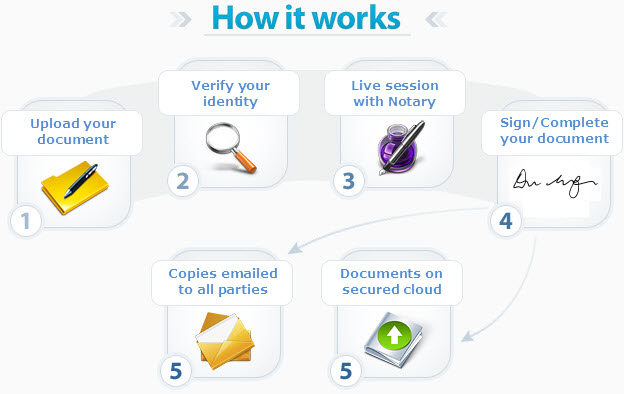eNotarize Power of Attorney agreements in minutes!
CREATE.CONSENT.CLOSE
Many situations can call for you to notarize a power of attorney, including failing health, CPA, real estate transactions and long-distance business deals. The term “power of attorney” refers to the legal document that assigns power to a trusted individual to make financial, health care, estate and other personal decisions on behalf of another person. The individual charged with making decisions is an agent, representative, attorney-in-fact, proxy, surrogate, or some people commonly use the phrase “power of attorney” to refer to both the document and the agent. The person assigning the power is the principal. Depending on state laws, the signed power of attorney may not hold any legal weight unless it’s been notarized.
Electronic notaries. Allows, in the case of an electronic notarization, a notary to notarize a document when the signer is not in the notary’s presence if satisfactory evidence of the identity is established. Furthermore, the bill allows satisfactory evidence to be based on video or audio conference technology that permits the notary to communicate with and identify the principal at the time of the notarial act. This bill is identical to SB 827.
The National Association of Secretaries of State (NASS) affirms the role of the Secretary of State or other state notary commissioning entity as the sole authority to establish standards enabling electronic notarizations that will protect signature credibility, avoid identity fraud and provide accountability to the public in order to promote secure electronic commerce.
- USA: E-SIGN Electronic Signatures in Global and National Commerce Act
- USA: UETA Uniform Electronic Transactions Act (State law)
- USA: FDA 21 CFR 11 Electronic Signature Regulations
- USA: HHS-HIPAA HIPAA Security Standards (Proposed)
- USA: SEC / NASD Electronic Signature and Records Standards (Brokerage)
- USA: Federal Reserve/OCC Electronic Records Standards
- USA: GPEA Government Paperwork Elimination Act
- USA: Dept. of Education Standards for E-Signatures in Electronic Student Loan Transactions
- USA: DoD Support for DoD PKI and Common Access Card Program
- USA: IRS Electronic Signature Requirements
- Canada: Electronic Commerce Act
- EU: ESD EU Electronic Signatures Directive (all EU Countries)
- Hong Kong Electronic Transactions Ordinance
- India Information Technology Act
- Japan Law Concerning Electronic Signatures
- Australia Electronic Transactions Act
- Singapore Electronic Transactions Act
- South Korea Basic Law on Electronic Commerce
- United Kingdom: Electronic Signatures and Associated Legislation
- Phiippines: Electronic Signatures Laws and Regulation




